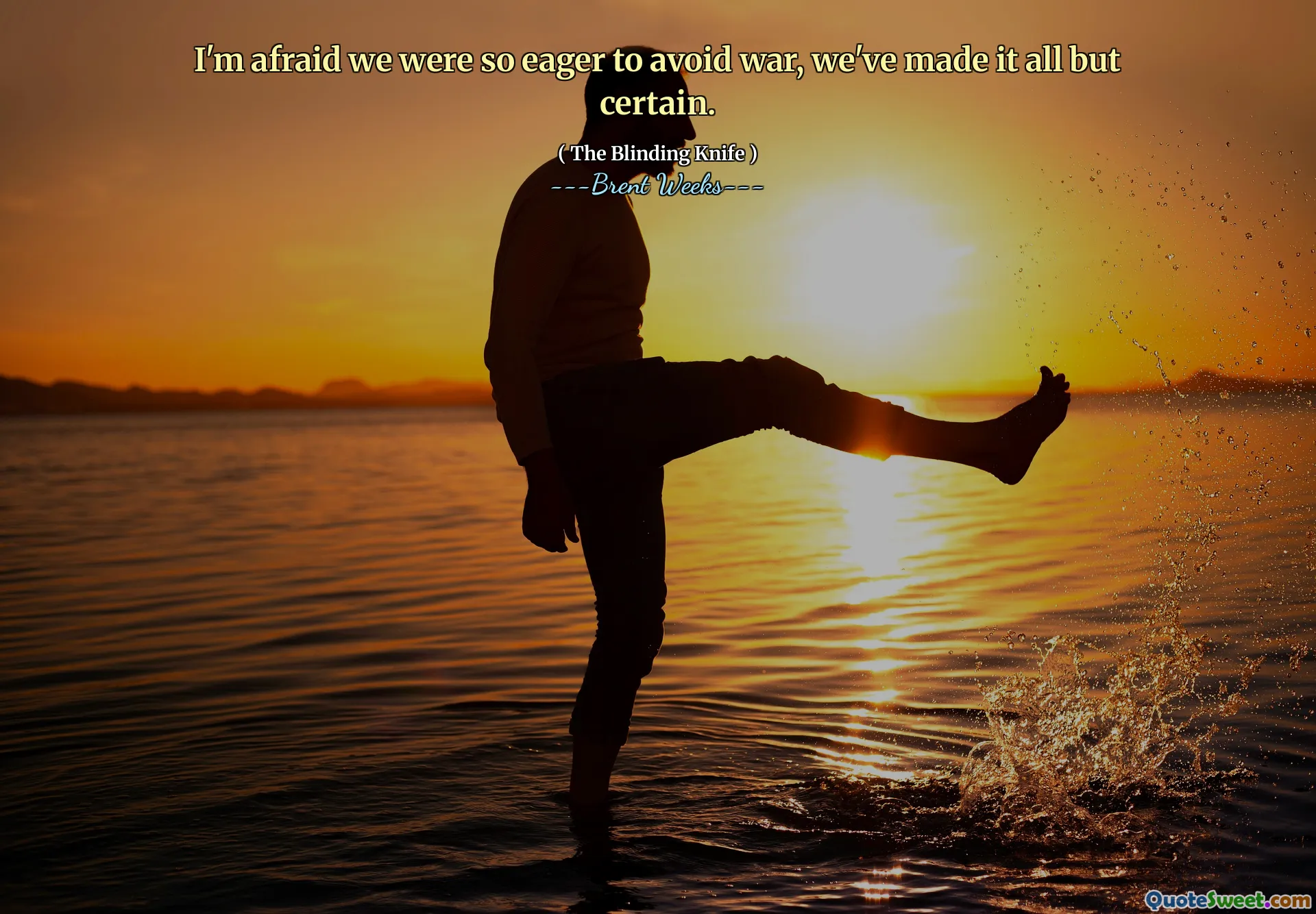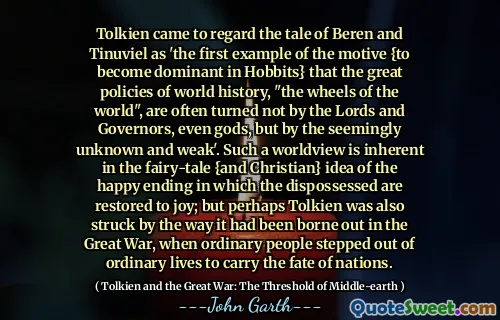
I'm afraid we were so eager to avoid war, we've made it all but certain.
This quote highlights a paradox often encountered in diplomacy and conflict resolution: the very efforts intended to prevent war can inadvertently make it more likely. The desire to avoid violence and conflict drives nations and leaders to act cautiously, often through negotiations, appeasements, or strict rules that limit responses. However, these actions can also embolden aggressive parties or create perceptions of weakness, leading to miscalculations and misunderstandings. In the context of political and military strategy, overcompensating in the name of peace might reduce the room for maneuver, constraining options and increasing tension. It serves as a reminder that avoiding conflict requires not just the absence of actions that provoke war but also the confidence and strength to respond appropriately when needed. The struggle remains balancing diplomacy with preparedness, and recognizing that sometimes, assertiveness is necessary to deter aggression. The quote provokes reflection on the delicate dance of diplomacy—how to maintain peace without sowing seeds of instability. It underscores the importance of a nuanced approach, where warnings, commitments, and responses are carefully calibrated. It is a cautionary note that in the quest for peace, one must remain vigilant to prevent paradoxically paving the way for conflict's inevitable occurrence if missteps or over-corrections are made.






